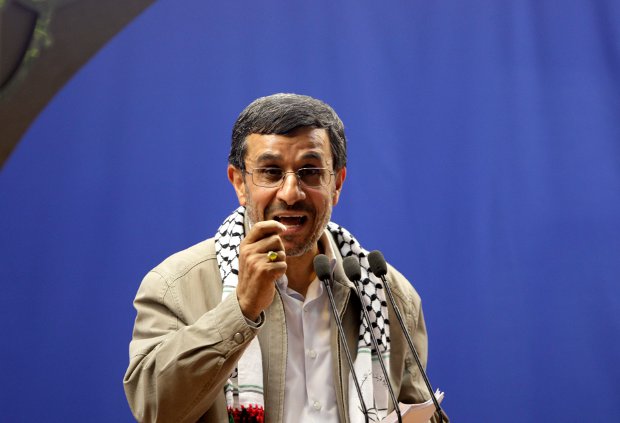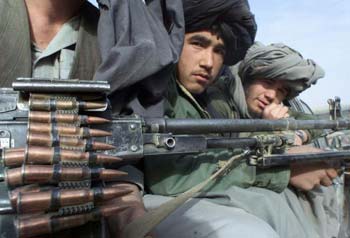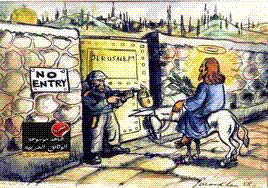 The discrepancy between Western media on the Middle East and the reality is astounding. Egypt's Mubarak is a good guy and reliable ally until, presto, he is a bad guy, corrupt, a tyrant, yesterday's goods. This extreme myopia in the interests of empire is the case across the board. So it should come as no surprise, that 'Axis of Evil' Iran, supposedly just itching to build atomic bombs and terrorize one and all, has good relations -- getting better all the time -- not only its neighbours Afghanistan (reconstruction aid plus a new rail link from Herat to the Persian Gulf) and Pakistan (the gas Peace Pipeline), but its not-so-friendly rivals Saudi Arabia and now Egypt.
The discrepancy between Western media on the Middle East and the reality is astounding. Egypt's Mubarak is a good guy and reliable ally until, presto, he is a bad guy, corrupt, a tyrant, yesterday's goods. This extreme myopia in the interests of empire is the case across the board. So it should come as no surprise, that 'Axis of Evil' Iran, supposedly just itching to build atomic bombs and terrorize one and all, has good relations -- getting better all the time -- not only its neighbours Afghanistan (reconstruction aid plus a new rail link from Herat to the Persian Gulf) and Pakistan (the gas Peace Pipeline), but its not-so-friendly rivals Saudi Arabia and now Egypt.
This month there are two conferences -- OIC and NAM -- where Iran's increasingly prominence internationally is on display. The Organization of Islamic Cooperation (OIC) meeting last week in Mecca saw Iranian President Mahmoud Ahmedinejad sitting next to Saudi King Abdullah bin Abulaziz, and frank discussion about Syria, with Iran making the decision to expel Syria look foolish and pointless. Surely the Syrian leadership should have been invited to make its case first; as it stands, the expulsion is a violation of the OIC charter. “By suspending Syria’s membership, this does not mean you are moving towards resolving an issue. By this, you are erasing the issue,” said Iran’s Foreign Minister Ali Akbar Salehi. And making things worse, he could have added.

 The Taliban began their spring campaign as a British lord put a price on Bush's scalp, notes Eric Walberg
The Taliban began their spring campaign as a British lord put a price on Bush's scalp, notes Eric Walberg Easter celebrates suffering and compassion. Alhamdulillah, these human traits were on display on Easter Sunday at European airports and in the Holy Land, reports Eric Walberg
Easter celebrates suffering and compassion. Alhamdulillah, these human traits were on display on Easter Sunday at European airports and in the Holy Land, reports Eric Walberg



